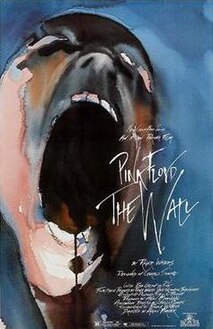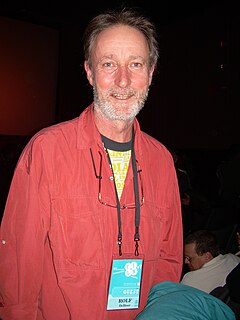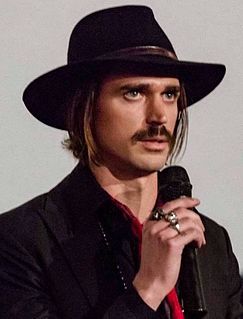Career
Cunningham started his career in 1976 on the long running children’s TV show, The Wallace and Ladmo Show. He initially commenced working with Bill Thompson (Wallace), Vladimir Kwiatkowski (Ladmo) and Pat McMahon, after securing a free toy deal for 6 months for the Ladmo Bag. In 1978 he was promoted to associate producer where he was involved with marketing, on-air talent and scripting of the show.
The Wallace and Ladmo Show, also known as It's Wallace? and Wallace & Company, was a children's television show produced by and aired on KPHO-TV in Phoenix, Arizona, from April 1, 1954, to December 29, 1989. For most of its run, it was broadcast in the morning, Monday through Friday. With the advent of video tape the show was recorded the day before and played the following morning.
William Earnest Thompson, better known as Wallace, co-hosted The Wallace and Ladmo Show, a daily children's variety show broadcast on KPHO-TV in Phoenix, Arizona for 36 years. The program featured short comedy skits and cartoons and was known for humor that appealed to adults as well as children.
John Patrick Michael "Pat" McMahon is best known for his portrayal of numerous characters on The Wallace and Ladmo Show, a daily children's variety show broadcast on KPHO-TV in Phoenix, Arizona. McMahon is also a longstanding fixture on the Phoenix broadcasting scene where he has worked at KRIZ, KOY, and KTAR radio stations—serving as program director, disc jockey, and talk-show host, among other positions.
From 1978 to 1979, Cunningham worked as a stand-up comedian performing at the Playboy Club, Barnum & Bailey Circus, as the Hamburgler and Ronald McDonald.

The Playboy Club was initially a chain of nightclubs and resorts owned and operated by Playboy Enterprises. The first club opened at 116 E. Walton Street in downtown Chicago, Illinois, United States, on February 29, 1960. Each club generally featured a Living Room, a Playmate Bar, a Dining Room, and a Club Room. Members and their guests were served food and drinks by Playboy Bunnies, some of whom were featured in Playboy magazine. The clubs offered name entertainers and comedians in the Club Rooms, and local musicians and the occasional close-up magician in the Living Rooms. Starting with the London and Jamaica club locations, the Playboy Club became international in scope. In 1991, the club chain became defunct. On October 6, 2006 a new club was opened in Las Vegas, and in 2010 new clubs were opened as well in Macao and Cancun. In time the Las Vegas club closed on June 4, 2012, the Macao club closed in 2013 and the Cancun club closed in 2014. In May 2014 the Commerce Casino in Los Angeles opened a Playboy themed lounge consisting of gaming tables and Playboy Bunny cocktail waitresses.

Ronald McDonald is a clown character used as the primary mascot of the McDonald's fast-food restaurant chain. In television commercials, the clown inhabited a fantasy world called McDonaldland to which he had adventures with his friends Mayor McCheese, the Hamburglar, Grimace, Birdie the Early Bird and The Fry Kids. As of 2003, McDonaldland has been largely phased out, and Ronald is instead shown interacting with normal children in their everyday lives.
In 1980, Cunningham moved to Hollywood, there he was hired to market and promote motion picture films for major studios and production companies, most notably Annie, directed by the John Huston. Pink Floyd – The Wall, starring Bob Geldof and Bob Hoskins. Flashdance, produced by Jerry Bruckheimer and starring Jennifer Beals. High Road to China starring Tom Selleck and Risky Business, starring Tom Cruise. By 1984 he had contributed to promoting over 200 motion picture films.

Annie is a 1982 American musical comedy-drama film based on the Broadway musical of the same name by Charles Strouse, Martin Charnin and Thomas Meehan which in turn is based on the Little Orphan Annie comic strip by Harold Gray. Directed by John Huston and written by Carol Sobieski, the film stars Albert Finney, Carol Burnett, Ann Reinking, Tim Curry, Bernadette Peters, Geoffrey Holder, Edward Herrmann and Aileen Quinn as the title character. Set during the Great Depression in 1933, the film tells the story of Annie, an orphan from New York City who is taken in by America's richest billionaire Oliver Warbucks. Filming took place for six weeks at Monmouth University in New Jersey.

John Marcellus Huston was an American film director, screenwriter and actor. Huston was a citizen of the United States by birth but renounced U.S. citizenship to become an Irish citizen and resident. He returned to reside in the United States where he died. He wrote the screenplays for most of the 37 feature films he directed, many of which are today considered classics: The Maltese Falcon (1941), The Treasure of the Sierra Madre (1948), The Asphalt Jungle (1950), The African Queen (1951), The Misfits (1961), Fat City (1972) and The Man Who Would Be King (1975). During his 46-year career, Huston received 15 Oscar nominations, won twice, and directed both his father, Walter Huston, and daughter, Anjelica Huston, to Oscar wins in different films.

Pink Floyd – The Wall is a 1982 British live-action/animated musical drama film directed by Alan Parker with animated segments by political cartoonist Gerald Scarfe, and is based on the 1979 Pink Floyd album of the same name. The film centers around a confined rocker named Pink, who, after being driven into insanity by the death of his father and many depressive moments during his lifetime, constructs a metaphorical wall to be protected from the world and emotional situations around him. When this coping mechanism backfires he puts himself on trial and sets himself free. The screenplay was written by Pink Floyd vocalist and bassist Roger Waters.
Cunningham began his involvement with the Australian Film Industry in 1989, when he was hired by Hoyts Cinemas following a move to Australia. At Hoyts he was in charge of cinema operations and industrial relations changes to the Australian cinema business in New South Wales and Victoria. [1]

The Hoyts Group is an Australian group of companies, including Hoyts Exhibition, Hoyts Kiosk and Val Morgan. The company operates more than 430 screens and over 65,000 seats. Val Morgan, the cinema advertising arm of the Hoyts Group, is Australia and New Zealand's leading national supplier of cinema screen advertising with network coverage of over 2,000 cinema screens covering metro, regional and country areas. VMO is Val Morgan's sister company offering digital screen advertising in over 4,000 Out-of-Home environments in Australia and New Zealand. In June 2015, the Hoyts Group was wholly acquired by Wanda Cinema Line, a subsidiary of Chinese conglomerate Dalian Wanda Group, the largest commercial property developer in China and world's largest cinema chain operator.
In 1998, he founded his own production company, RLC Motion Picture Entertainment.
In 2001, Cunningham hosted the VIP's at a Lunch with George H. W. Bush at the Sydney, Wentworth Hotel. The luncheon was the only public function attended by President Bush Snr during his three-day visit to Australia.

George Herbert Walker Bush was an American politician who served as the 41st president of the United States from 1989 to 1993 and the 43rd vice president of the United States from 1981 to 1989. A member of the Republican Party, he held posts that included those of congressman, ambassador, and CIA director. Until his son George W. Bush became the 43rd president in 2001, he was usually known simply as George Bush.
In 2004 he was involved with the short film Lennie Cahill Shoots Through which won the 2004 AFI award for Best Short Fiction film. [2] Also in that year, he began work on the Australian film, G'day La, to have been directed by Tom Jeffries. It was greenlit before falling over 48 hours after signature. In 2005, he signed Micky Dolenz to direct the film. [3]
From 2005-2009 he managed the wrestler and actor Nathan Jones.
In 2005, he began development work on Dingo Dreaming, a film that was to be shot in the Western Australian Pilbara town of Roebourne. [4] [5] In 2008, it was resurrected, to have been shot in Wiluna, Western Australia and star Charles Matthau, boxing champion Joe Bugner, and former professional rugby league footballer and boxing champion Anthony Mundine. [6]
In 2012, his feature film, Birth of a Warrior was released. He wrote and co-produced the film with Anthony Salamon. It starred Tonny White, a Wing Chung Kung Fu Master. [7]
In 2016, he produced The Legend of Ben Hall. [8] The film was about the last nine months of Bushranger Ben Hall’s life in and around Forbes and the New South Wales country side where Ben Hall lived during his law abiding days and his final years as a wanted man. [9] [10]

















